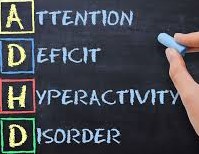
ADHD, HYPER-FOCUSED AND THE CHRONICALLY LATE MENOPAUSAL PERFECTIONIST!
ADHD Hyperfocused Menopausal Perfectionist
 ADHD – Hyperfocused – Menopausal and the Chronically Late Perfectionist. My personal musings about my life and research about dealing with adult ADHD / ADD by Aleena Aspley, a Certified Sexological Bodyworker, Somatic Sex Educator, Intimacy Coach and NEO Tantra Professional.
ADHD – Hyperfocused – Menopausal and the Chronically Late Perfectionist. My personal musings about my life and research about dealing with adult ADHD / ADD by Aleena Aspley, a Certified Sexological Bodyworker, Somatic Sex Educator, Intimacy Coach and NEO Tantra Professional.
.
.
OMG, IT’S ADHD !!!
I am writing this post because I recently received a diagnosis of adult ADHD, which came as a huge surprise. Reflecting now on my life and after going through early menopause, I now understand why life has been challenging for me, over the last seven years.
Looking back, I’ve felt like my life has been an ongoing roller coaster ride with many possitive and negative ups and downs. The positive decisions have been fantastic however my hyperactive and sometimes attention inept ADHD brain has made some very bad life decisions and on reflection, I look back and momentarily feel sad.
.
.
WHY ME? ADHD & MENOPAUSE
Many women get diagnosed with ADHD after Menopause. As menopause progresses, the significant decrease in estrogen levels can impact ADHD and dopamine brain neurotransmitters.
For me, I felt a sudden shift in my mental state. I no longer had my usual dynamism. My weight started to increase significantly due to hormonal changes, and I sought dopamine hits from carb-rich and sugary foods.
During the post-menopausal phase, I struggled with concentration and zoning out during conversations. Motivation became a major challenge; I lacked the drive to handle household tasks, work on my home business, or exercise at the gym.
Depression and anxiety arose, as my once business-minded and dynamic self felt unmotivated, mentally foggy, and lacked clarity.
The lack of motivation led to self-criticism and negative self-talk. I questioned why I was experiencing such negativity when I had always been a positive person.
Additionally, I faced difficulties remembering faces and names, which worried me as I didn’t want others to think I was snubbing them after forgetting our previous introduction.
.
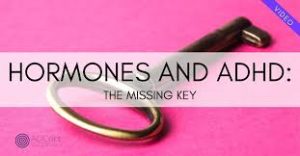
.
UNDIAGNOSED ADHD & MENOPAUSE
The combination of undiagnosed ADHD and menopause can create a challenging condition. Menopause brings a significant decline in female hormones, leaving dopamine as the primary neurotransmitter.
When coupled with a stressful life, challenging work committments, family and relationship issues, dopamine depletion can lead to physical and mental exhaustion, pushing the body and brain towards burnout.
When a woman reaches a point of complete physical and emotional burnout, it is fortunate if she encounters a doctor knowledgeable in adult ADHD. A diagnosis and appropriate medication can help reactivate her brain, offering a chance for renewed brain health, body functioning, feeling motivated again and well-being.
.
.
My Research: In the past two years more women are being diagnosed with ADHD. Menopause can unmask or exacerbate ADHD symptoms in women who may have previously gone undiagnosed or had milder ADHD symptoms.
As estrogen levels decline during menopause, it can affect the balance of neurotransmitters in the brain, including dopamine, which plays a role in attention and focus. This hormonal shift can contribute to the emergence or worsening of ADHD symptoms in some women. The overlap of symptoms between menopause and ADHD, such as difficulties with concentration, memory problems, and mood changes, can make it challenging to differentiate the two conditions.
.
ADHD Hyperfocused Menopausal Perfectionist
FOUR YEARS OLD
During my early years, starting school was a significant social challenge. As an only child without ADHD awareness, I despised school. Making friendships with girls and engaging in stereotypically feminine activities didn’t interest me.
Being a full-on ADHD tomboy, I found boys more enjoyable to be around. Their company was effortless, and I loved engaging in energetic pursuits like climbing, fort-building, and riding my scooter, bicycle, horse, and later, motorbike.
Academically, I was a late bloomer. Sitting still and learning didn’t captivate me; school felt dull. However, mathematics stood out as my strong suit. I really enjoyed maths and I found the subject very easy.
.
.
My Research: ADHD is a neurodevelopmental disorder impacting children, characterized by inattention, hyperactivity, and impulsivity. Symptoms include difficulty focusing, restlessness, forgetfulness, and impulsiveness.
ADHD affects academics, hindering concentration, task completion, and organization. Socially, children may struggle with impulse control and listening skills, affecting relationships with peers. Emotional regulation challenges lead to mood swings and emotional outbursts.
.
.

.
.
THE TEENAGE YEARS
Academically, high school wasn’t my strong suit. If a subject didn’t interest me, I’d sit at the back, zone out, and rarely study. However, my teenage years brought a transformation.
My ADHD brain thrived on surging teenage hormonal changes, and I became hyper-focused and infatuated with boys. Falling in love with my first boyfriend was a profound experience and my ADHD brain wouldn’t switch off and I was constantly thinking, over sharing and talking about him.
Regrettably, I was quite rebellious, causing endless fights with my parents. After eighteen months of struggling with a teenager who did as she pleased, they eventually gave up completely and awaited the fall-out consequences.
Luckily for me, at sixteen, I met an intelligent guy studying medicine. Being two years older, we embarked on a six-year journey filled with much heart felt love. As a couple, we embraced life, taking up scuba diving, acquiring motorbikes, cars, and going on camping trips and adventures across Australia and abroad. His quick-wittedness resonated with me, and to this day, I relish the company of active and intellectually stimulating men. I would describe myself as a sapiosexual.
.
.
My Research: Teenagers with ADHD face challenges in academics, impulsivity, social interactions, emotional regulation, and executive functioning. They may struggle with organization, time management, and staying focused, leading to academic under-achievement and stress. Impulsivity can lead to risky behaviors.
Difficulty with social cues and boundaries affects forming friendships. Intense mood swings and emotional regulation issues strain relationships.
Executive functioning struggles impact planning and problem-solving. These challenges impact daily routines, self-care, and overall functioning. Support and understanding are essential for teenagers with ADHD to thrive.
.
.
ADHD Hyperfocused Menopausal Perfectionist
FITTING IN – BURNING FRIENDSHIPS
 Many ADHD people would say that they feel like the black sheep of the family and that they have issues understanding social norms and fitting in.
Many ADHD people would say that they feel like the black sheep of the family and that they have issues understanding social norms and fitting in.
In the past, I had huge difficulties in maintaining and keeping friendships.
My excitable ADHD personality and over zealous exuberance, accompanied by my hyper partying lifestyle burnt many friendships. I was a truck load of full-on-fun, motivation and excitement, however, too over the top and too much!
Looking back, I crashed and burnt many dear friends. I over shared, my personality was up and down like a yoyo, and I can understand that people can only take so much.
I have to say this was a huge learning experience for me, I have learned my lesson, and now, in later life, I do have a handful, of very dear and much loved close friends.
.
.
My Research: Individuals with ADHD may experience difficulties in maintaining friendships and feeling like they fit in. Their unique characteristics and behaviors can sometimes lead to challenges that impact their relationships. ADHD individuals often exhibit impulsive behavior, hyperactivity, and inattentiveness, which can be misunderstood or misinterpreted by others.
In social interactions, they may struggle to pick up on social cues, leading to unintentional interruptions or difficulty understanding nonverbal communication.
This can create a disconnect and strain on friendships, as their behaviors may be perceived as disruptive or disrespectful. Additionally, their hyperactive and energetic nature can sometimes overwhelm or tire out their peers, making it harder for them to maintain close connections.
ADHD Hyperfocused Menopausal Perfectionist
THE LIFE OF THE PARTY – ADD ALCOHOL
In my twenties, I was in focused ADHD party mode, I was at my fitness peak, I had the energy to non-stop party and hold down a few jobs, however, my personal life was all over the place with many ADHD romances and breakups.
MY ANALOGY: The absolute joy of life and living, with 100% exergized committment, I would describe my life as a 24 hour smorgasbord of romantic encounters, it was the best fucking time of my life and I lived my life and partied to it’s fullest!
I had many on and off romances, I could be super excited and motivated one week, living the high life and then sad and depressed the next because of my latest relationship disaster.
The great aspect of ADHD is that living in this high-octane mode, one can recover from their latest relationship collapse and be ready for the next new romance, party and dopamine high.
We really do get addicted to the dopamine high!!!
.
.
My Research: ADHD individuals can be drawn to the exhilaration of dopamine highs, seeking stimulation and novelty in social settings. Their lively and energetic nature can make them the center of attention, captivating others with their charisma. However, the impulsive tendencies associated with ADHD can lead to problematic behaviors such as excessive alcohol consumption, driven by the desire to intensify the dopamine rush.
In relationships, ADHD individuals may experience a pattern of on-and-off romances, driven by their intense emotions and impulsive decision-making. They might dive headfirst into passionate connections, only to experience mood swings that result in abrupt endings or periods of distance. These fluctuations in emotional states can strain relationships and make it challenging to establish long-term stability and intimacy.
Mood swings are another aspect of ADHD that can impact social interactions and emotional well-being. The rollercoaster of emotions, ranging from excitement and enthusiasm to frustration or irritability, can be overwhelming for both the individual with ADHD and those around them. .
.
.

.
.
ADHD BRAIN OVERLOAD & SWITCHING OFF
Sometimes my brain gets overwhelmed, leading to moments where I appear to disconnected and be in a brain fog.
My friends have said that on many occassions, it appears like I am away with the fairies, this is because when my brain gets fatiqued, I experience a dopamine drop, which affects my ability to stay focused and engaged. So, I just switch off.
.
.
My Research: When an ADHD brain becomes overwhelmed and fatigued, an individual can experience moments of disconnection and a feeling of being in a brain fog. This experience may give the impression to others that you are lost in your own world or “away with the fairies.”
One of the factors that contribute to this state is a dopamine drop in the brain. Dopamine is a neurotransmitter that plays a crucial role in motivation, attention, and focus. It helps in keeping the brain alert and engaged. However, when an ADHD brain becomes fatigued, the dopamine levels can decrease, affecting the persons ability to stay focused and connected.
A person with an ADHD brain can find it challenging to concentrate, stay engaged in conversations, or maintain attention on tasks. Their brain may seek a break from the overwhelming stimulation by disconnecting and entering a state of mental rest. This disconnection can manifest as zoning out or appearing distant.
.
.

.
ADHD Hyperfocus Menopausal Perfectionist
ADHD & BRAIN BURN OUT
As an individual diagnosed with adult ADHD, I must acknowledge my past tendency to set unrealistic expectations for myself. This has taken a toll on my health as I went above and beyond as a friend, rebuilding entire websites for free and working long hours without pay. I extended myself without considering my energy, brain health, and overall well-being.
Now, I want to clarify that hard work is not inherently bad. However, individuals with ADHD need to recognize their limitations. Taking on too much can lead to excessive stress, heightened emotions, and overstimulation of the nervous system, providing temporary dopamine boosts. Prolonged stress can eventually lead to dopamine burnout.
.
.
My Research: ADHD Dopamine burnout may manifest as feelings of depression or exhaustion. When experiencing dopamine burnout, it becomes essential to rest and allow the body and brain to recover and recharge. This period of rest is crucial for recuperation and maintaining overall well-being.
.

.
ADHD HYPERFOCUS & THE PERFECTIONIST
Hyperfocus plays a significant role in my life. When a new idea or business opportunity arises, my brain leaps into hyperfocus mode, passionately promoting and immersing myself in the endeavor. With tunnel vision, I devote myself entirely, leading to high levels of success, effortless idea generation, and speedy task completion.
However, the downside of hyperfocus is my tendency to pursue perfection. As you read this article, I’ve likely re-read it numerous times, made multiple changes and corrections. I now realise, that I am in fact a recovering ADHD perfectionist.
.
.
My Research: Hyperfocus is a distinctive trait observed in individuals with ADHD, characterized by an intense and prolonged state of concentration on a particular task or interest. When someone with ADHD experiences hyperfocus, they become fully absorbed in the activity, often losing track of time and their surroundings.
During hyperfocus, individuals with ADHD can exhibit exceptional levels of productivity, creativity, and attention to detail. They may experience a heightened sense of clarity and purpose, enabling them to complete tasks with great efficiency and accuracy. This intense focus can be particularly beneficial when working on activities that align with their interests or passions.
However, hyperfocus can also have its downsides. While it can result in impressive accomplishments, it can lead to a neglect of other important tasks or responsibilities. Individuals with ADHD may become so engrossed in their hyperfocused state that they disregard or overlook other commitments, deadlines, or even personal needs.
Moreover, hyperfocus can sometimes trigger perfectionistic tendencies. In the pursuit of perfection, individuals may become overly critical of their work, constantly seeking ways to improve or modify it. This perfectionistic drive can contribute to a reluctance to complete tasks or an aversion to taking risks, as they strive for an unrealistic level of excellence.
.
ADHD Hyperfocused Menopausal Perfectionist
ADHD & CHRONIC LATENESS
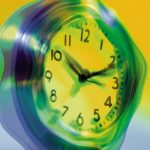 Lateness has always been an issue for me and I have been running late my whole life, which I do acknowledge, is very inconsiderate of others.
Lateness has always been an issue for me and I have been running late my whole life, which I do acknowledge, is very inconsiderate of others.
I have to say, that I do miscalculate how long getting ready will take, and I can procrastinate until the last minute.
When I realise, that I am running very late, my heart beat races and I go into hyperactivity mode. The pay off is that I get a huge dopamine hit.
So, now I’m running late, I feel very guilty and the negative thoughts that go through my head are soul destroying.
For instance, I have to meet a friend at a set time and I always miscalculate how long it will take me to get ready. In my mind, I 100% believe that it will only take me 10 minutes to get ready, when in reality, it will actually take me 40 minutes.
I often overlook the small tasks involved in preparing to leave the house, such as taking care of pets, selecting the right outfit, and ensuring my makeup looks perfect (due to my perfectionist tendencies). Being unorganized contributes to my difficulties in finding things. The truth is, I find organizing tedious and time-consuming. I’d rather invest my time in more exciting and enjoyable aspects of my life.
I have now discovered, through research the reason why ADHD people run late and it is because of dopamine. You see, the brain uses memory, attention, and dopamine to accurately predict time.
Dopamine is a chemical released by nerve cells into the brain. Dopamine is a type of neurotransmitter known as a monoamine. It is produced in various areas of the brain and serves as a chemical messenger, transmitting signals between nerve cells (neurons) in the brain and facilitating communication between the brain and the rest of the body.
People with ADHD and dopamine regulation can miscalculate how long tasks take and procrastinate until the last minute. I have done this my whole life and time management has been a constant issue.
.
.
My Research: Running late is not intentional or a reflection of irresponsibility. It is a symptom of ADHD-related difficulties in time management, organization, and self-regulation. Individuals with ADHD often face challenges in accurately perceiving time, managing their schedules, and resisting distractions. They may struggle to estimate the time required for tasks, leading to delays and underestimating how long activities will take.
I can be challenging for ADHD people to prioritize tasks, plan their time effectively, and allocate sufficient time for each activity. This can result in a lack of structure and difficulties in adhering to schedules, leading to lateness.
ADHD individuals may get absorbed in a particular task or become engrossed in external stimuli, losing track of time and neglecting other commitments. This intense focus on a single activity can disrupt their sense of time and cause delays.
People with ADHD may struggle with working memory, cognitive flexibility, and initiating tasks, making it harder to start and transition between activities. Difficulties in initiating tasks can lead to procrastination and time mismanagement, contributing to running late.
.
.
THE ADHD COCAINE HIT (DOPAMINE)
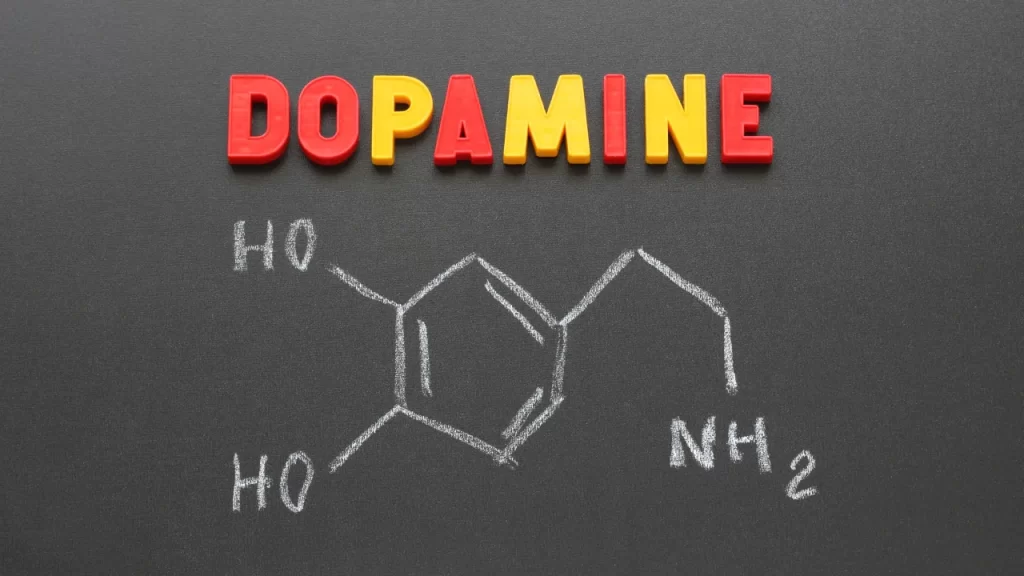
People with ADHD, who frequently run late, push their nervous system into over drive. An up regulated and stressed nervous system releases dopamine, providing a temporary boost similar to the effects of a cocaine hit.
The ADHD downside of getting into this energized and stressful state of consciousness, by activating constant dopamine hits, can over-load and deplete the human body, resulting in burn-out, a depressed mood, no motivation and fatigue.
.
.

.
.
ADHD Hyperfocused Menopausal Perfectionist
SOME SIGNS OF ADHD IN MENOPAUSAL WOMEN ARE:
- Inattention: Increased difficulty concentrating, trouble staying focused, or being easily distracted.
- Forgetfulness: Heightened memory problems, increased forgetfulness, or difficulties with organization and time management.
- Emotional Changes: Mood swings, irritability, or heightened emotional sensitivity.
- Hormonal Fluctuations: Fluctuations in estrogen levels during menopause can potentially exacerbate ADHD symptoms.
- Executive Function Difficulties: Challenges with planning, decision-making, and problem-solving may become more pronounced.
- Increased Restlessness: Heightened feelings of restlessness, fidgeting, or difficulty staying still. Restless leg syndrome.
- Sleep Issues: Insomnia or disrupted sleep patterns, which can contribute to ADHD symptom exacerbation.
- Libido Issues: While not everyone with ADHD experiences sexual dysfunction, some women are affected by hypersexuality (very high sex drive), hyposexuality (very low sex drive or a lack of interest in sex), and other sexual factors that may cause them or their partners’ distress.
- Medication & Libido: Some ADHD medications may have side effects that affect libido or sexual functioning. It’s important to discuss any concerns or changes in sexual health with your healthcare provider.
.
.
ADHD Hyperfocused Menopausal Perfectionist
IS IT ADHD OR ALZHEIMERS?
ADHD and Alzheimer’s disease are two distinct conditions that can sometimes exhibit overlapping symptoms, leading to some similarities in how they may appear. However, it is important to note that these are separate conditions with different underlying causes.
ADHD is a neurodevelopmental disorder characterized by symptoms like inattention, hyperactivity, and impulsivity. While typically present from childhood, it can persist into adulthood due to differences in brain structure and neurotransmitter function.
In recent years, an increasing number of menopausal women are been diagnosed with ADHD. During this of their life stage, they may notice changes in memory and increased distractibility.
Some women with diagnosed ADHD become concerned when their symptoms worsen, while others question if they have ADHD or Alzheimer’s.
.
ALZHEIMER’S DISEASE, on the other hand, is a progressive neurodegenerative disorder primarily associated with aging. It affects memory, cognitive function, and behavior. Alzheimer’s is characterized by the buildup of abnormal protein deposits in the brain, leading to the destruction of brain cells.
While some symptoms of ADHD, such as forgetfulness or difficulties with attention and memory, may resemble early signs of Alzheimer’s disease, it is important to consider the broader context. ADHD symptoms are typically present since childhood and are more pervasive, whereas Alzheimer’s symptoms typically occur later in life and progress over time.
If you have concerns about cognitive symptoms or memory issues, it is essential to consult with a healthcare professional who can provide an accurate diagnosis and appropriate guidance. They can evaluate your specific symptoms, medical history, and conduct any necessary tests to differentiate between ADHD and conditions like Alzheimer’s disease.
.
ADHD Hyperfocused Menopausal Perfectionist
ALEENA ASPLEY
My personal musings about my life and research about dealing with adult ADHD / ADD by Aleena Aspley, a Certified Sexological Bodyworker, Somatic Sex Educator, Intimacy Coach and NEO Tantra Professional.
 Written by Aleena Aspley,
Written by Aleena Aspley,
Owner of Yoni Whisperer Bodywork
North Brisbane, Queensland Australia
www.YoniWhisperer.com
www.LingamWhisperer.com.au
www.AleenaAspley.com
.
.
.
TEN AWESOME VAGINAL ORGASMS – Her Orgasmic Potential is Unlimited!
TESTOSTERONE DEFICIENCY — Male Depression & Loss of Vitality
ADHD, HYPERFOCUSED AND THE CHRONICALLY LATE
MENOPAUSAL PERFECTIONIST!

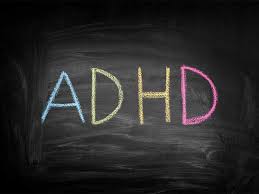





One thought on “ADHD, HYPER-FOCUSED AND THE CHRONICALLY LATE MENOPAUSAL PERFECTIONIST!”
Comments are closed.